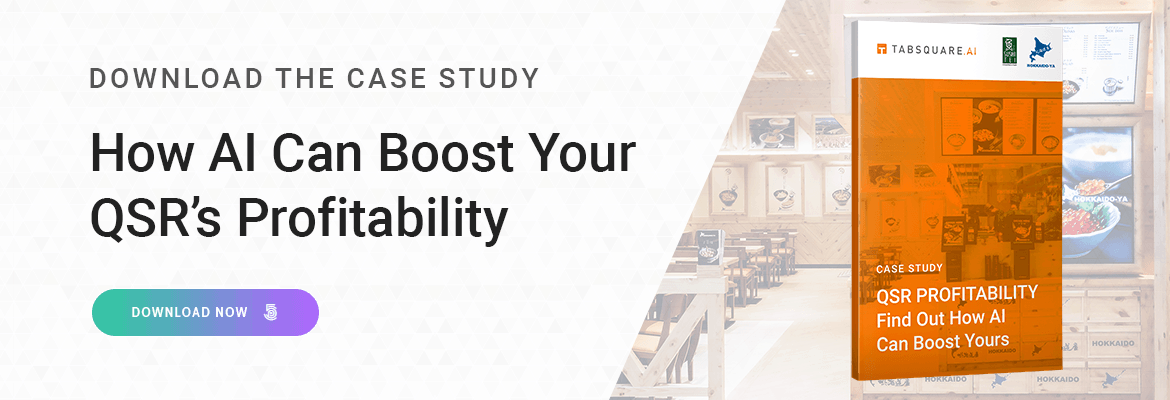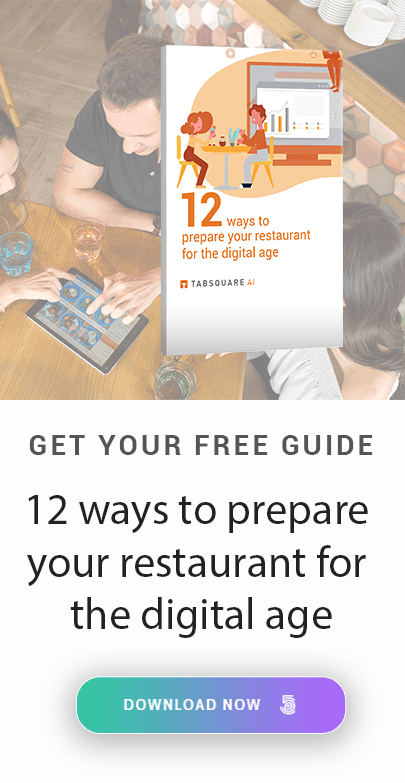One of the world’s biggest business buzzes in recent weeks has been the news of McDonald’s US$300m purchase of Dynamic Yield; an artificial intelligence (AI)-powered personalisation platform designed to improve the consumer experience. The message of this unlikely marriage between cheeseburgers and AI is clear: the digital age is here, and the time to jump on the hoverboard is now.
It’s no secret that a personalised buying experience is a valuable tool for boosting customer satisfaction, and it’s clear that AI has lifted the bar in this area. Venues that have invested in the latest tech can now provide a personalised home page, suggest items based on what a customer has viewed and bought before, accept loyalty and discount codes and auto-fill payment details. These all combine to create a seamless purchase experience.
The entrance by McDonald’s into the world of AI shows that this emerging tech is not just a cool tool for retailers. Customers are now coming to expect – even demand – a high level of personalisation as part of their dining experience too. If it’s missing, it’s interpreted that a brand is behind the times, or just doesn’t care about their needs. This can result in a lost sale – not to mention the negative impact on engagement, brand perception and loyalty.
‘Smart’ suggestions remove diner overload
Bland, standardised marketing and promotion are no longer enough; to guide a customer towards a sale (or upsell), a personalised experience is now necessary. Psychologist Barry Schwartz says in The Paradox of Choice that too much choice can overwhelm customers, which is where AI-driven personalisation comes into its own.
Smart suggestions based on a customer’s previous dining experience help prevent this overload, lead a customer to buy more and enjoy a more satisfying experience. This positive experience encourages them to return in the future.
Restaurants and cafés – particularly quick service restaurants (QSRs) – are quickly realising the benefits of offering AI-powered dining to their customers. The McDonalds example is a great case in point. They have clearly jumped at the opportunity to invest in emerging technology to increase their market share by streamlining and personalising their customer offering.
The most obvious benefit of AI is to help guide customers with their food choice decisions. For a new customer, reading a menu for the first time can be overwhelming and confusing. AI removes this stress by presenting intuitive options that narrow down choices to what the diner is more likely to enjoy.
Similarly, a returning customer may become frustrated with traditional restaurant processes if they already know what they like and want. AI combats this by presenting them with previous order details and makes it easy to re-order, along with up- and cross-sell suggestions based on past buying behaviour. Auto-filled payment details complete the painless dining process.
Unobtrusive upsell and cross-sell
AI also provides plenty of opportunities for unobtrusive upselling by suggesting meal deals, drinks, or desserts that complement a diner’s other choices. The success of this can be seen in the experience of Sushi Tei, a leading restaurant chain in Singapore and Asia.
Sushi Tei implemented TabSquare’s AI-powered ipad ordering solution, SmartTab, in late 2016 and have seen a significant boost in their key profitability metrics. This includes a 10% increase in average item value and a 5% lift in average order value. TabSquare’s AI-powered smart upsell ability is one of the strongest contributors to these results.
When Sushi Tei’s quick-service concept - Hokkaido-Ya was launched - they immediately saw the benefits that TabSquare’s SmartKiosk offered and implemented this solution from day one, making Hokkaido-Ya the first restaurant in Singapore to use an AI-powered dining solution.
TabSquare's self order kiosk solution, SmartKiosk, is a perfect solution for Hokkaido-Ya’s quick service clientele. They can walk in and be identified by facial recognition, or by entering their phone number. This then triggers the customer’s personalised menu recommendations and allows them to order and upgrade their meals, providing a hassle-free experience. The process is error-free and the kiosk offers diners a personalised, individual menu based on their tastes, preferences and behaviours.
Proof of the success of SmartKiosk’s AI-driven personalisation is in the numbers, with Hokkaido-Ya’s average cover value rising by up to 5%. Hokkaido-Ya has also benefited from its enhanced reputation as a fast-casual restaurant.
DOWNLOAD THE CASE STUDY TO LEARN MORE
In the food and beverage industry – notorious for its low-profit margins – this level of ROI is gold. Further, the streamlining of restaurant operations with AI also means quicker service, faster table turns and a reduction in labour costs.
Another less obvious, but maybe even more beneficial, the advantage of using AI is the collection and use of valuable customer data to enhance marketing, menu development, and understanding of a QSR’s customer base.
AI is not just a technology that big businesses can use – small businesses can also benefit from adopting AI into their business operations. Tech entrepreneur Bobby Goodman, writing for Forbes, said: “AI tools enable small businesses to thrive in an ever-changing marketplace, giving them the same edge that much larger organizations could leverage.”
TabSquare has been in operation since 2012 and started utilising AI with the launch of their SmartKiosks in 2018. As a leader of in-restaurant technology solutions, their mission is that dining out is about good food and great conversation; TabSquare takes care of the rest.
Find out how TabSquare’s cloud ordering platform can help your restaurant or café deliver a seamless dining experience with maximum upsell and keep your customers coming back for more. Join other F&B businesses that are seeing significant benefits from the latest that technology has to offer. Download our case study to find out how.
.png)



